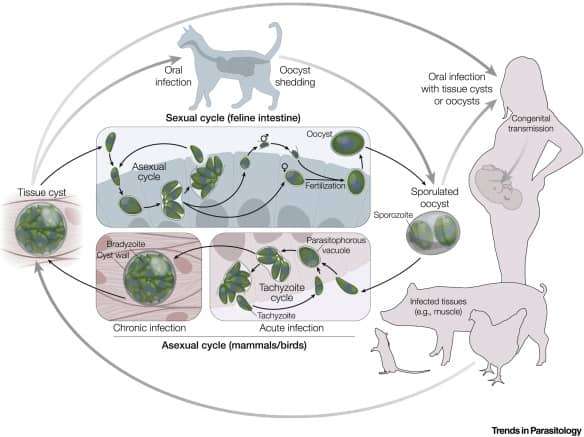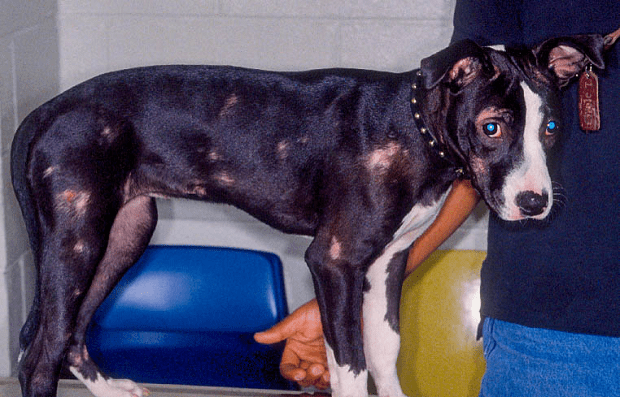Toxoplasmosis, cats and litterboxes have always been a nerve-wracking subject for pregnant women. The cysts develop in the feces over a period of two to three days, so the litterboxes, cats and the pregnant women dealing with this have reason to be worried.
But, what it comes down to, is what is the actual risk of toxoplasmosis from cats to pregnant humans? The short answer is, the risk is really, really low. Cats become infected with Toxoplasmagondii, the organism that causes toxoplasmosis, from hunting and ingesting infected animals.
Therefore, indoor cats are much less likely to ever become infected in the first place. If a new cat from a rescue, shelter or found outside is infected, it may shed the T. gondii oocytes (the protozoal equivalent of eggs) in their feces for a few weeks at most.

It is only during this time, when the cat is first infected, where toxoplasmosis could be transmitted to a human. If the cat is infected and is shedding, the timing is important. It takes usually 2-3 days for the cysts in the feces to actually become infectious.
So, someone who cleans and removes fecal material from the litterbox daily will not come in contact with the infectious occysts as they will remove them before they reach a stage where they can infect a pregnant human.
Lastly, the way a human becomes infected is by ingesting the organism. In other words, something contaminated with T. gondii needs to make it into the mouth of the pregnant person.
Therefore, if a pregnant woman wears disposable gloves and a surgical mask while cleaning the litterbox and washes her hands after cleaning, or preferably both, then the risk of infection further decreases.

To summarize, for a pregnant woman to become infected with toxoplasmosis by her cat:
- the cat would need to be infectious for the first time during the woman’s pregnancy
- the woman would need to be cleaning the litterbox less frequently than every 24 hours
- she would need to be doing it while not wearing gloves, a facemask and/or washing her hands afterwards.
That’s a lot of what ifs with perfect timing.
Besides your cat, how else could a pregnant person become infected with toxoplasmosis? Most infections occur from consuming raw or undercooked meat or milk, or eating unwashed fruits and vegetables. Many others may occur from unwashed hands after gardening or other activities involving soil.
In fact, avoiding raw and undercooked meats and milk, washing fruits and vegetables before eating them, and washing hands after gardening (and before eating) are much more important ways to prevent transmission of toxoplasmosis to people than concerns about the family cat.
So, don’t worry too much about your cat! Take precautions but most important, wash your fruit, vegetables and hands! Cook your meat fully! A pregnant person and their cat can still have a wonderful relationship during pregnancy


